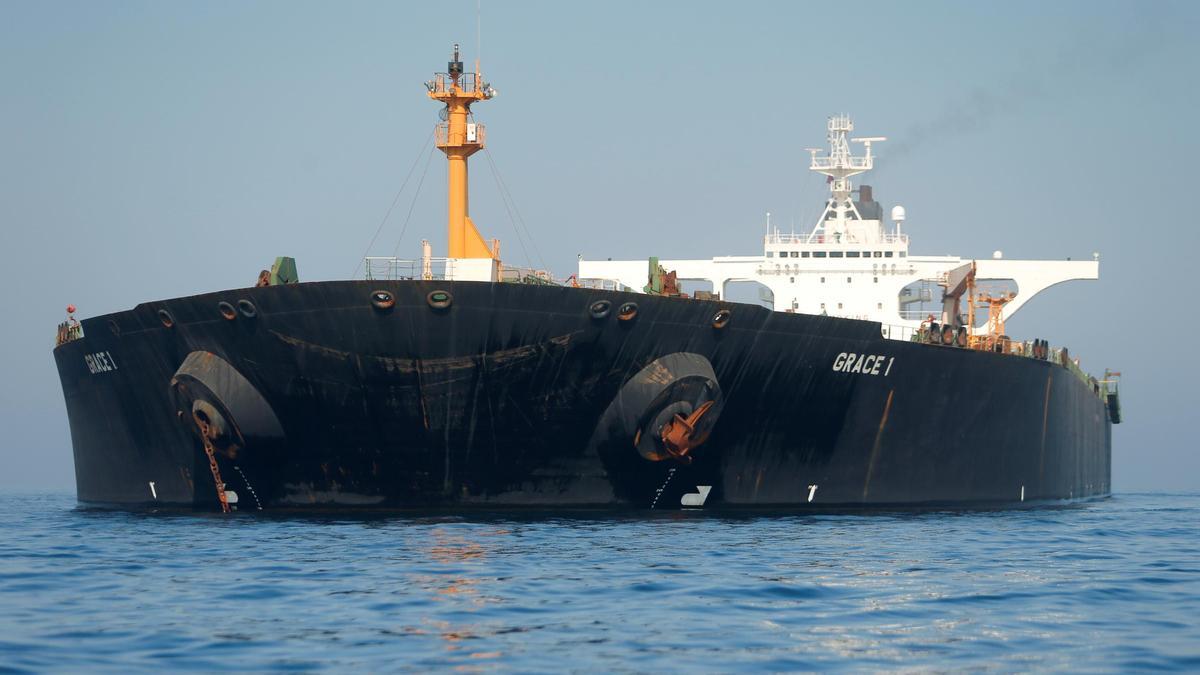Shell has suspended the traffic of its oil tankers through the Red Sea due to the increase in Houthi attacks.

Shell Oil Company has been suspended traffic of their ships For him the Red Sea As a result of “until further orders” Houthi militia attack Of Yemen, According to sources confirmed by ‘The Wall Street Journal’, the oil group took the decision last week given the intensity of the conflict and the risk taken by the ships and their crews. An attack on an oil tanker could cause environmental devastation.
The measure has been announced by Shell after learning that a Greek ship attacked with missile The 24 crew members sank off the west coast of Yemen this Tuesday without any injuries or significant damage to the ship, which was able to proceed north into the Red Sea, the shipping company told Efe. For its part, the US military carried out a New bombing in Yemen to destroy four anti-ship ballistic missiles that the Houthis planned to use against ships in the area, two officials told Reuters.
The Greek cargo ship ‘Zographia’, flying the Maltese flag, was hit by a missile launched by Houthi rebels about 76 nautical miles north-west of the port of Salif in Yemen. According to a representative of Greek shipping company Vulkanis Technical Maritime Enterprises, none of the 24 crew members were injured and the ship is headed for the Suez Canal.
The attack occurred around 11:00 GMT and according to the company, another incident had occurred a few hours earlier, when a ship tried to approach the cargo ship, which was avoided by maneuvering by the Greek ship. The attacked ship had departed Vietnam empty and its final destination was Israel, where it was to be loaded. It has been refused access to Israel following the incident and the company is looking for a port near the Suez Canal where it can anchor to assess the damage.
increase in attacks
Yemen’s Iran-backed Houthi rebels Attacks in the Red Sea have increased in recent weeks They claim the action is being taken against ships suspected of being linked to Israel in response to the bombing of Gaza. The attacks on the region, which is vital for maritime trade – given that it is an essential step to access the Suez Canal – led the US and the United Kingdom to attack the Houthis in Yemen last week.
The Houthis responded by firing earlier on Monday missile against an American cargo ship, Without causing injury or significant damage. Last Thursday, another Greek ship, the oil tanker ‘St Nicholas’, was captured by the Iranian Navy in the Gulf of Oman and is currently at the Iranian port of Bandar Abbas.
The US State Department has demanded that the Iranian government “immediately” release the ship and its crew, noting that the ship’s capture is “the latest example of Iran’s behavior aimed at disrupting international trade.”
The ship in question – when it was still sailing under the name ‘Suez Rajan’ – was involved in a year-long controversy in which the US Justice Department seized one million barrels of Iranian crude oil it was transporting.
Attacks in the Red Sea, through which between 12% and 14% of world trade passes, could put supply chains Prices for crude oil shipments to and from Europe also increased. All major shipping companies have rerouted their Europe-bound ships and detoured around southern Africa. The Cape of Good Hope route represents an increase in the costs that shippers typically assume, although this depends on the contracts signed. In oil companies, B.P. And qatarenergy They have already announced that they will avoid the Red Sea as well. Sources in the Spanish mass consumption sector admit that reservation processes and an increase in orders are already taking place. Asia To compensate for delays or possible blockages in trade routes.
amount in gas transportation
Prime Minister of Qatar present at the World Economic Forum in Davos (Eastern Switzerland), Mohammed bin Abdulrahman Al-ThaniIt is estimated that the increase in the Red Sea will impact the transportation of liquefied natural gas (LNG). “There are alternative routes, but these routes through the Red Sea (…) are less efficient than the current route”, stressed the Prime Minister of Qatar, whose country is one of the largest producers of LNG in the world.
The route through Africa means extending the journey period by more than 10 days, which increases fuel consumption and navigation time. The price of containers has increased in some cases, going from an average of 1,000 euros per container to 3,000 euros.
(TagstoTranslate)Gaza
